Problem-Solving Skills Extra Challenge Geometry Worksheets for Ages 4-9
12 filtered results
-
From - To
Enhance your child's critical thinking with our Problem-Solving Skills Extra Challenge Geometry Worksheets for Ages 4-9. These engaging worksheets are designed to boost geometric reasoning and spatial awareness, blending fun with learning for young minds. Kids will tackle various complex but enjoyable tasks, including shape recognition, pattern completion, and spatial puzzles. Perfect for early education, our worksheets are tailored to foster problem-solving and analytical skills. Whether for classroom supplementation or at-home enrichment, these geometry worksheets pave the way for advanced math learning in a captivating, age-appropriate manner. Watch your child’s problem-solving abilities flourish with every completed challenge!
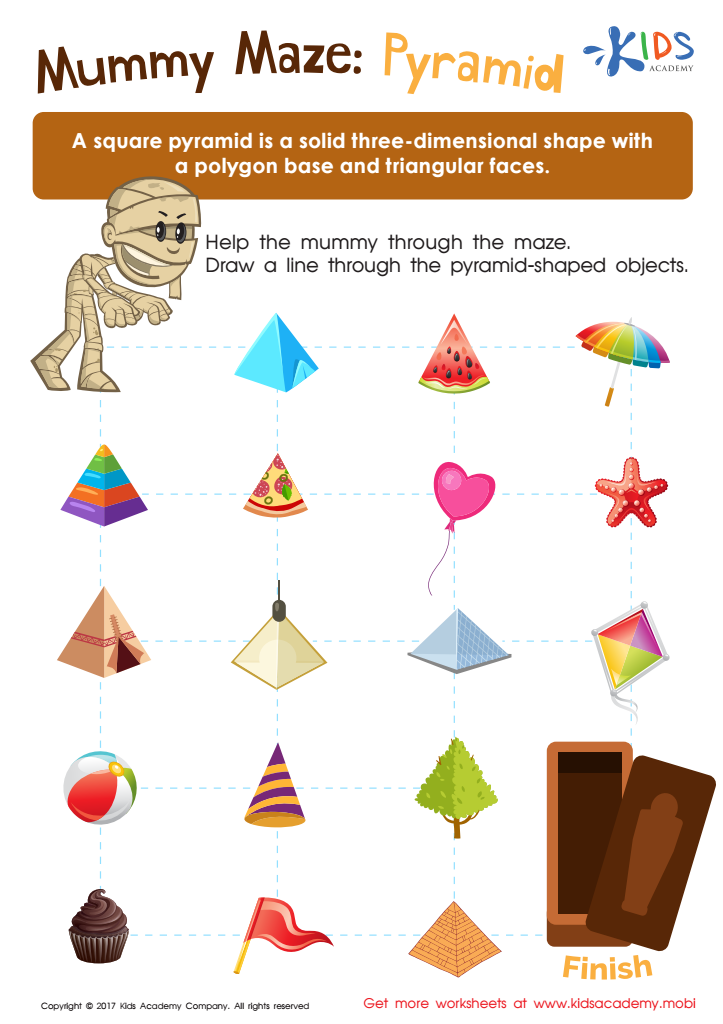

Mummy Maze: Pyramid Printable
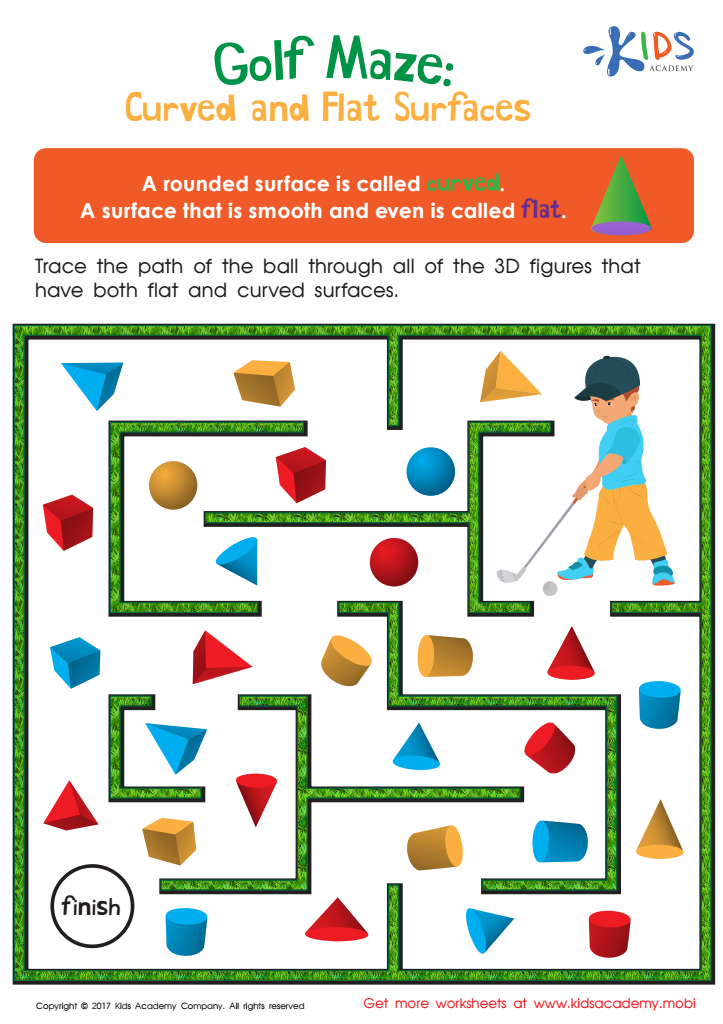

Golf Maze: Curved and Flat Surfaces Worksheet
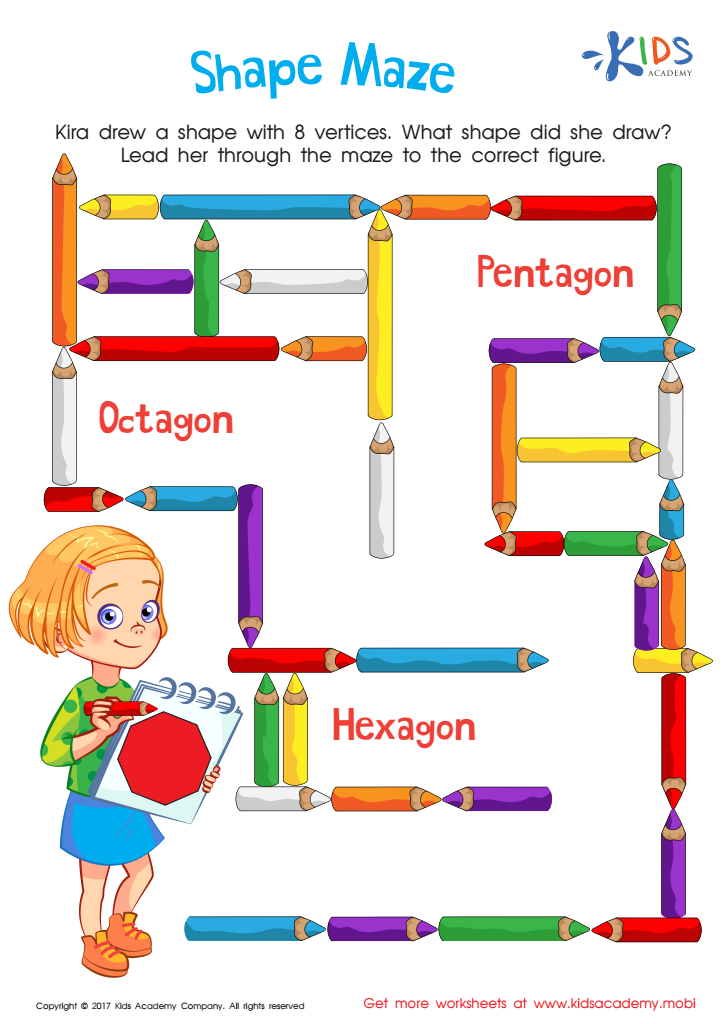

Shape Maze Worksheet
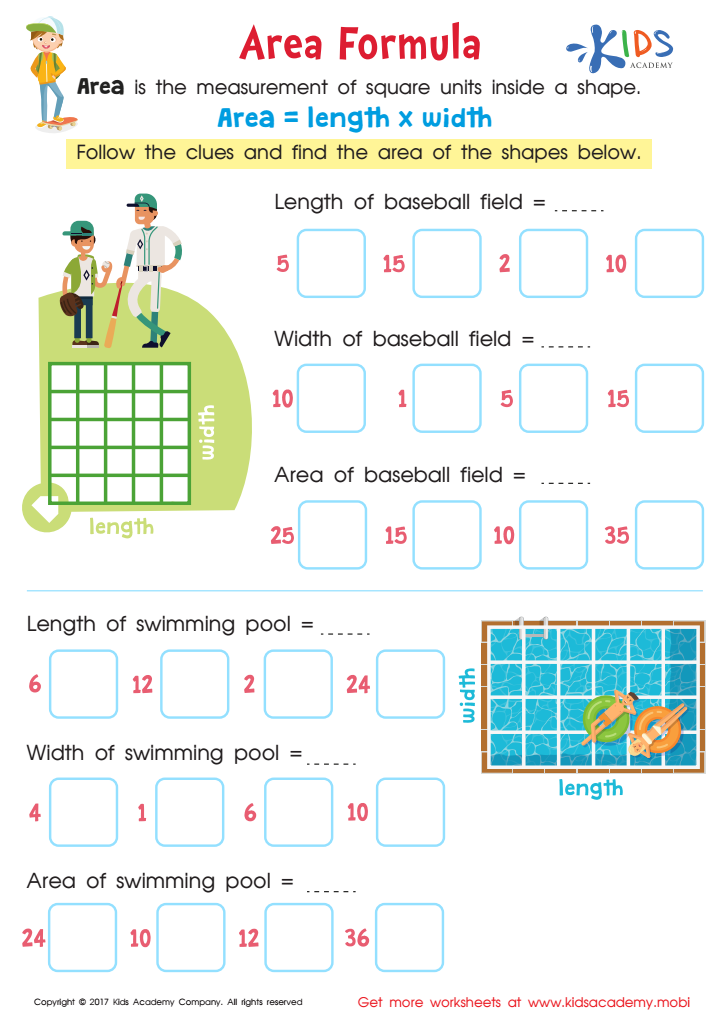

Area Formula Worksheet
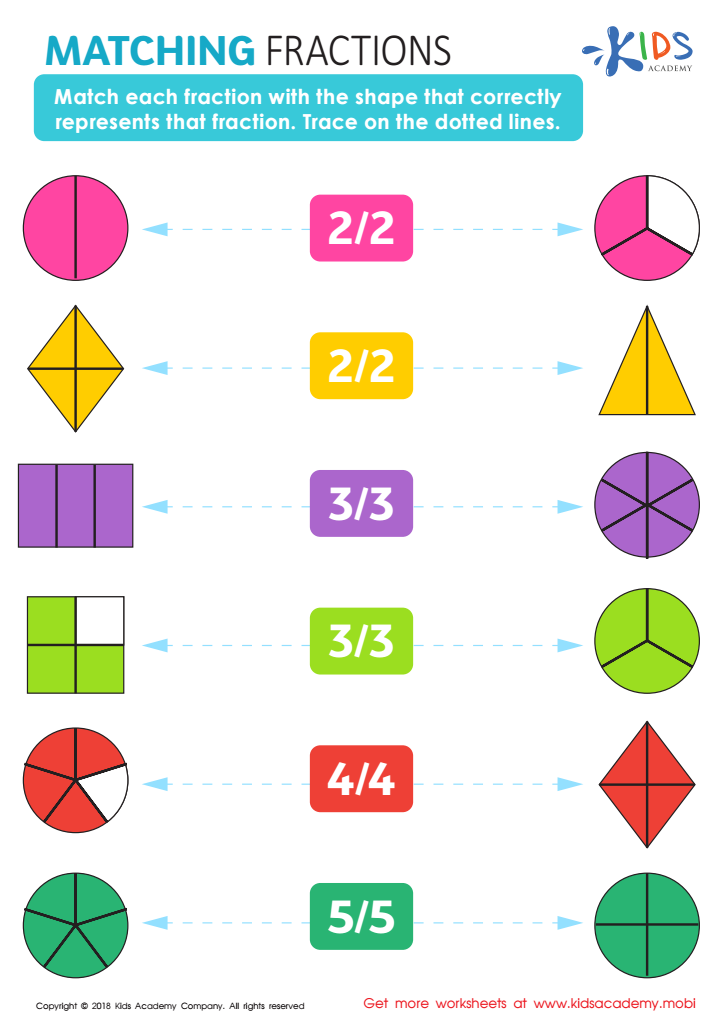

Matching Fractions Worksheet
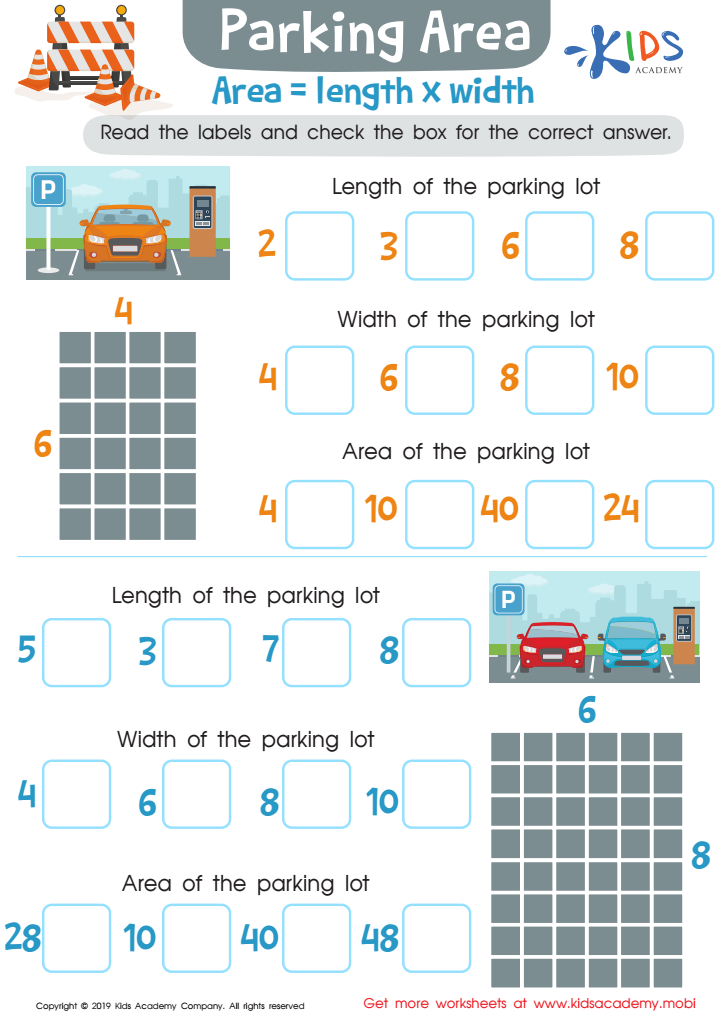

Parking Area Worksheet
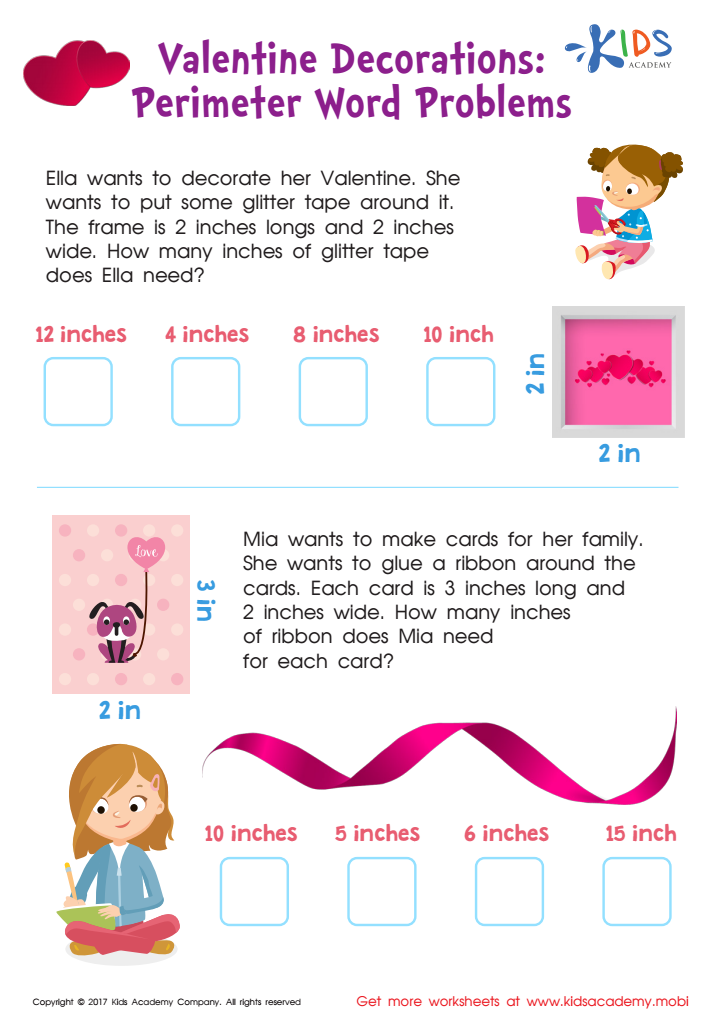

Perimeter Word Problems Worksheet
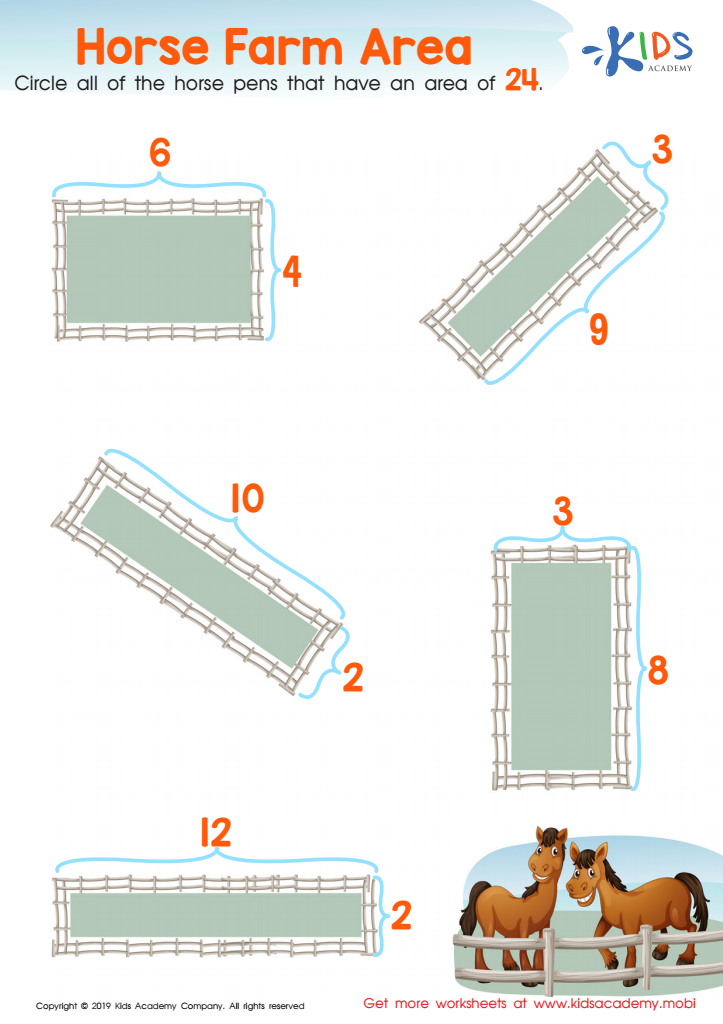

Horse Farm Area Worksheet
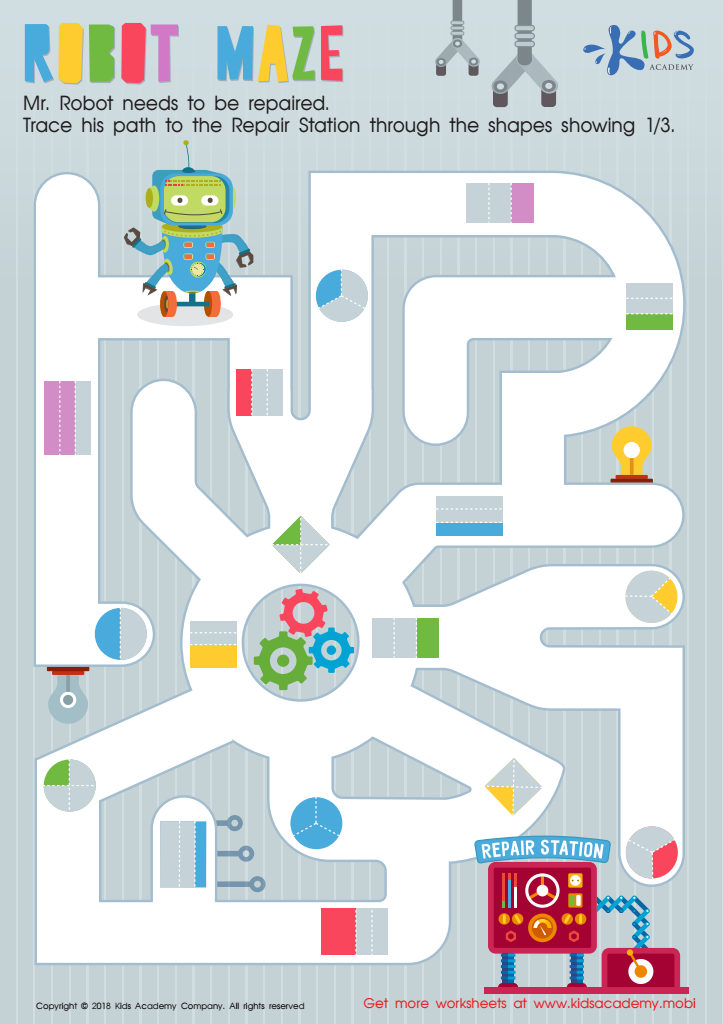

Robot Maze Worksheet
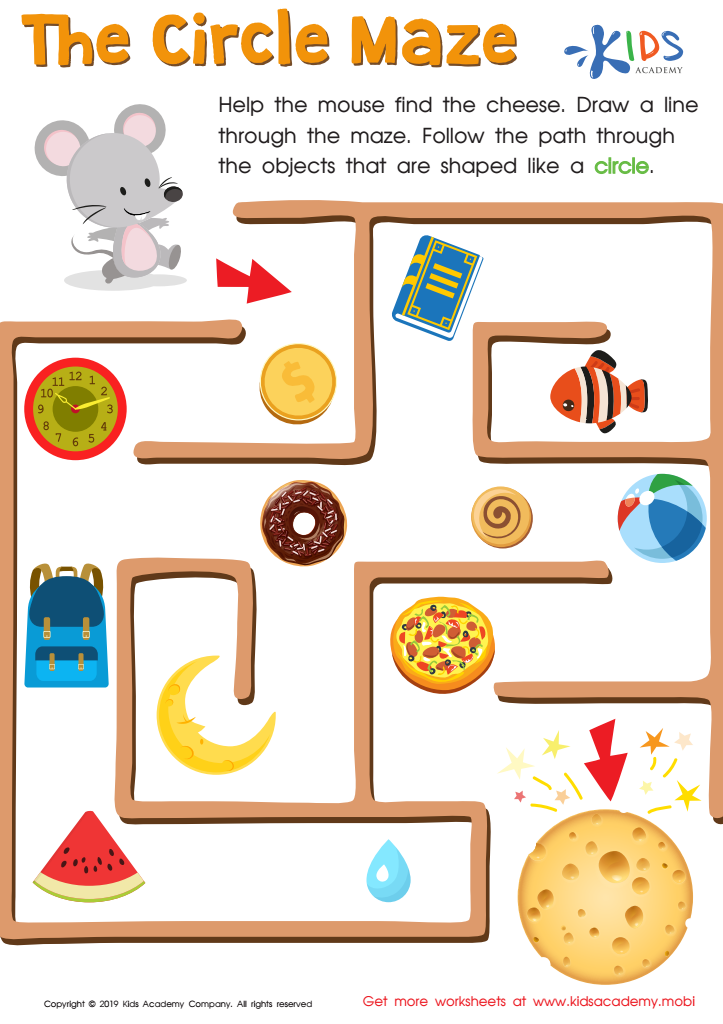

The Circle Maze Worksheet
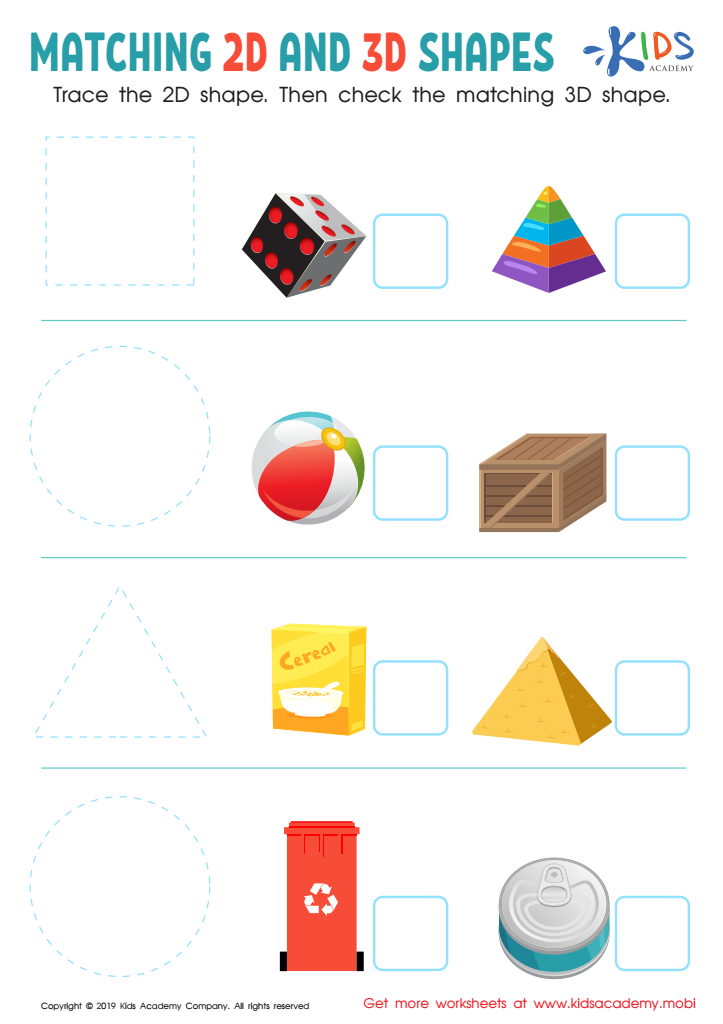

Matching 2D and 3D Shapes Worksheet
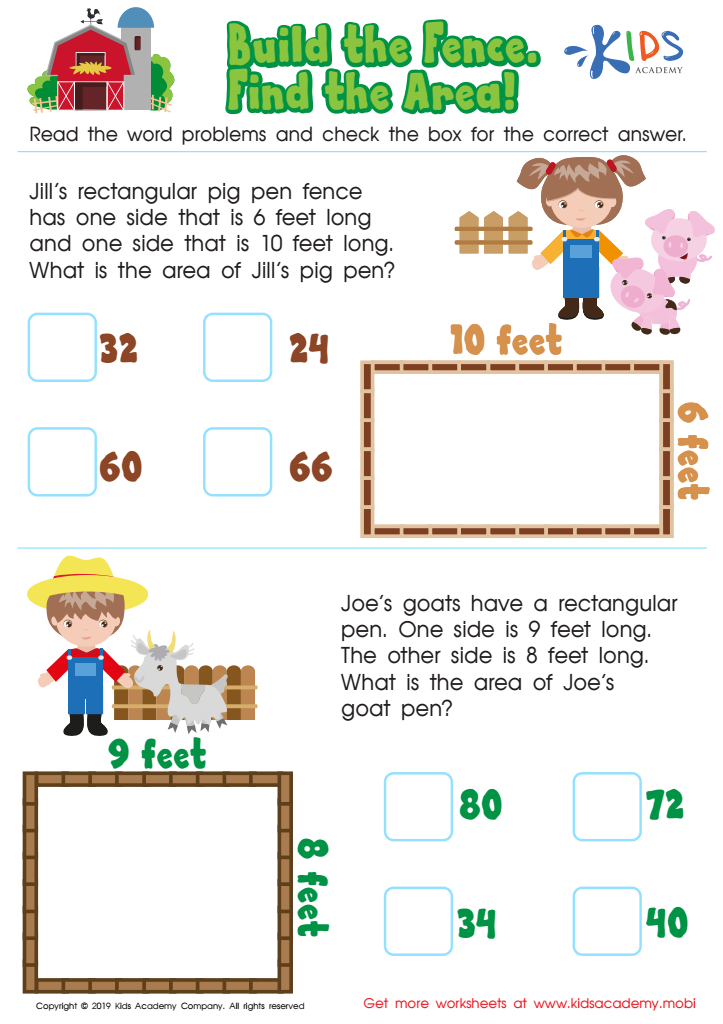

Build the Fence, Find the Area Worksheet
Parents and teachers should prioritize incorporating Problem-Solving Skills Extra Challenge Geometry into the learning environment for children ages 4-9 because it offers numerous developmental benefits that go beyond simple mathematical knowledge. At this formative stage, children's brains are highly adaptable and ripe for cognitive development. Engaging in geometry-based problem-solving challenges helps young children develop critical thinking and reasoning abilities.
Through geometry, children learn to recognize shapes, sizes, and spatial relationships, which are foundational for understanding more complex mathematical concepts later in life. These challenges stimulate their brains, improving their ability to think logically and methodically. Such activities also enhance fine motor skills, as children often manipulate shapes physically or draw geometric figures.
Moreover, geometry challenges require kids to follow directions, identify patterns, and strategize to find solutions. This promotes perseverance and patience as they work through problems, skills that are valuable not just in academics but in everyday life.
Lastly, these challenges provide an excellent means for collaborative learning. When children solve problems together, they learn to communicate effectively, share ideas, and consider different perspectives—all crucial social skills.
By engaging kids in geometric problem-solving, parents and teachers are equipping them with essential tools that can lead to academic success and intellectual growth.
 Assign to My Students
Assign to My Students


























